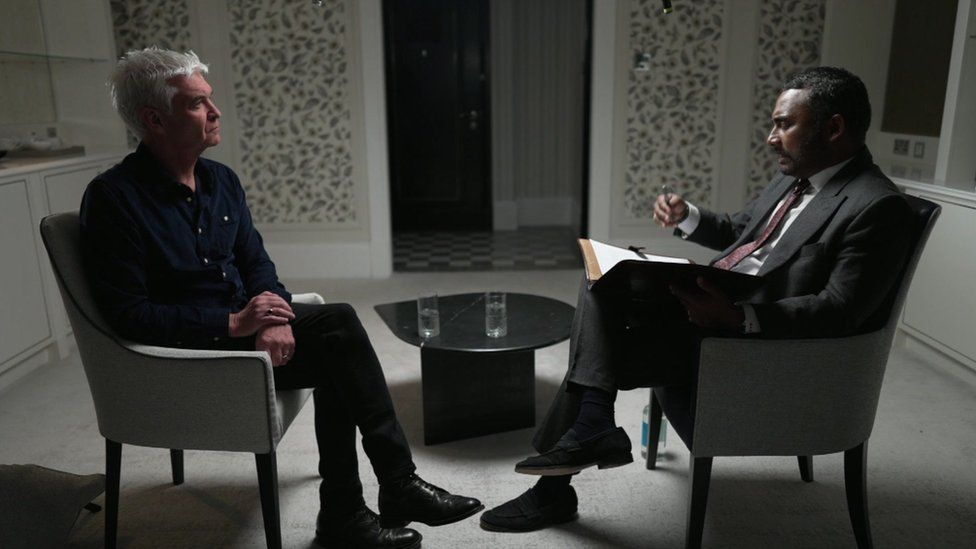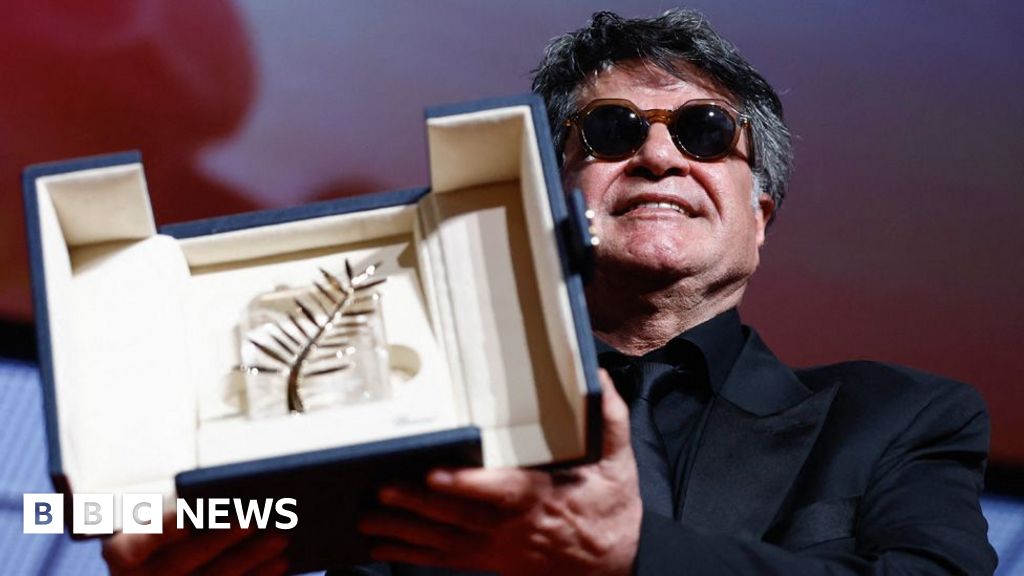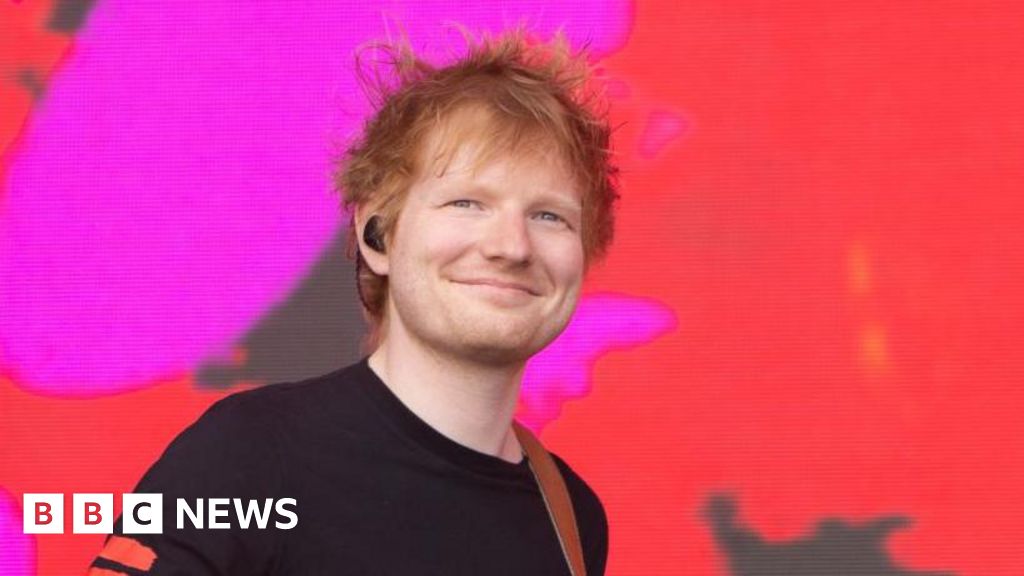ARTICLE AD BOX

Phillip Schofield told the BBC's Amol Rajan he had no involvement with his former colleague leaving This Morning
By Amol Rajan
Media editor
Perhaps few people in Britain understand the power of televised testimony like Phillip Schofield.
For more than 40 years he has solicited it; for the past 20, on This Morning, he has specialised in it.
He also knows, given his public profile, about the enduring power of tabloids. This is why, after a week of frenzied headlines, allegations, speculation and abuse on social media - all of it a postscript to years in which his sexuality and extra-marital affair were not public knowledge - he agreed to an interview with The Sun and, separately, the BBC.
What did he want from this interview? To say sorry, show contrition, and correct falsehoods in the public domain.
What did BBC News want from the interview? To get to the truth, by applying scrutiny.
This task was made significantly more delicate by his clearly very highly charged emotional state. As Tony Dolce, one of our two camera operators (along with Tony Jolliffe) observed afterwards, Schofield's hands were shaking through much of the interview. Before we began, after we finished, and during the two short breaks in filming, he instinctively reached for a small green vape, from which he took long drags.
Schofield, who I had never met, mentioned suicide within moments of our acquaintance, and repeatedly during the interview.
When an interviewee presents themselves in this way, there is a tension between a duty of care to the individual and a duty of care to the truth. Hard questions still need to be asked, not least because this is not primarily a story about celebrity tittle tattle, or idle gossip about ITV's star talent.
The former This Morning presenter speaks about his affair and the subsequent fall out, with the BBC's Amol Rajan.
It is a story about potential abuse of power, and workplace culture at a time when many industries in many countries are under scrutiny as never before.
On several key points, Schofield offered an alternative account to the prevailing narrative.
He was emphatic that there was no sexual impropriety before his former colleague was at least 20.
He said he had no involvement whatsoever in the young runner moving to another ITV show.
He said that the young man had not, to the best of his knowledge, signed a non-disclosure agreement with ITV, which would be tantamount to the broadcaster buying his silence.
He said ITV did not pay for taxis for the young man from Schofield's apartment to the ITV studio.
And he said that he did not reveal he was gay on This Morning in 2020 because a deal was struck with The Sun, in which they got the exclusive in return for not running a story about his relationship with the young man.
All these claims - or rather counter-claims - will feature in ITV's forthcoming review. Why should we believe Schofield today, given he lied for years? That's for you to decide. ITV still has many questions to answer, and they'll be asked them by MPs in the coming days.
It is worth emphasising that this is Schofield's account of events. Others - notably the young man - have their own. Moreover, it is Schofield's account at a particular moment in this story, on the basis of the evidence available. ITV's independent, external review will likely uncover fresh evidence that adds detail and context to what we know.
After years of innuendo, speculation and deceit, the truth about Phillip Schofield's relationship with a young colleague is finally, slowly, emerging. Perhaps more importantly, Britain's biggest commercial public service broadcaster has joined the ranks of mighty institutions having to prove they do not tolerate abuse of power.
Help and support
If you're affected by any of the issues in this article you can find details of organisations who can help via the BBC Action Line.
The full BBC interview is now available to watch on BBC iPlayer
The former This Morning presenter speaks about his affair and the subsequent fall out, with the BBC's Amol Rajan.

 1 year ago
46
1 year ago
46








 English (US) ·
English (US) ·